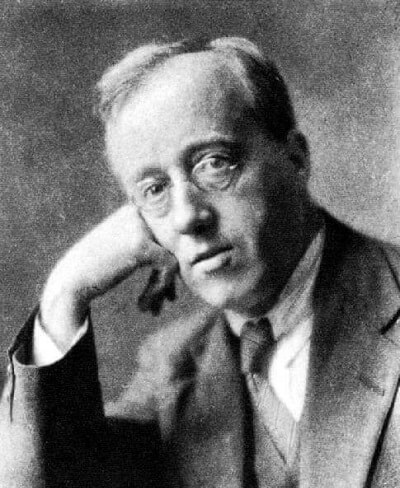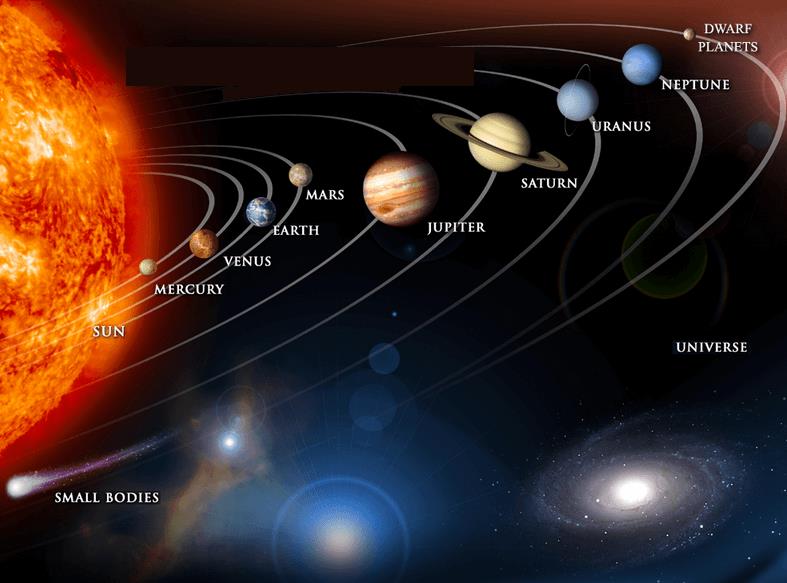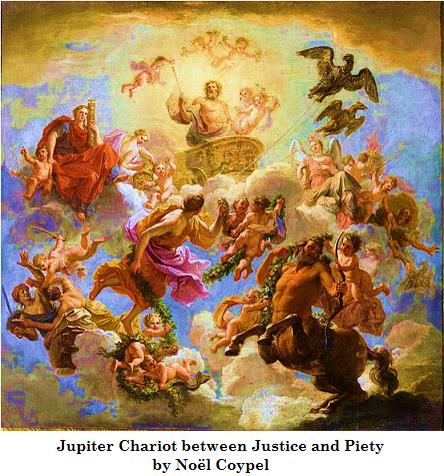Activity 1: Create Your Own Solar System
- Over the 7-week period, as you listen to Holst's musical suite, 'The Planets,' create a huge map of the solar system.
- Each week you'll add a new planet to your solar system.
- At the end of the 7 weeks, hang your solar system up, play the music, and unveil it to your family and friends.
- To make your solar system, either get one large piece of paper (paper on a roll) or tape or glue together several pieces of construction paper.
- This week: Listen to the music, and draw, color, or paint Jupiter. Remember that Jupiter is the fifth closest planet to the sun, it is the largest, and it has a large red spot. Keep your picture in a safe place until your cosmic unveiling.
Activity 2: Describe the Music
Listen to the music, and close your eyes and let yourself imagine. What do you picture as you listen to the music?
- After listening to the music, describe and discuss what you heard.
- Does the piece remind you more of a quiet classroom filled with working children or a boisterous celebration? Do you sense unhappiness, anger, or triumph in this piece?
Read the list of adjectives. Select those that describe the music or think up additional adjectives.
- Cheerful
- Mournful
- Soft
- Noisy
- Vivacious
- Soothing
- Eerie
- Threatening
- Surreal
- Whimsical
- Rhythmic
- Grand
Activity 3: Study the Painting of the Roman God Jupiter
Examine the painting paired with the music.
- After you study the painting, narrate the scene shown in the painting aloud using your own words.
- Describe how the painting relates to the music.
Activity 4: Study the Photograph of the Planet Jupiter
Examine the photograph of the planet below while listening to the music.
- After you study the photograph, describe the planet's appearance in your own words.
- Describe how the photograph relates to the music.
 Classical Music in Pictures
Music in Pictures
Classical Music in Pictures
Music in Pictures

 Classical Music in Pictures
Music in Pictures
Classical Music in Pictures
Music in Pictures





